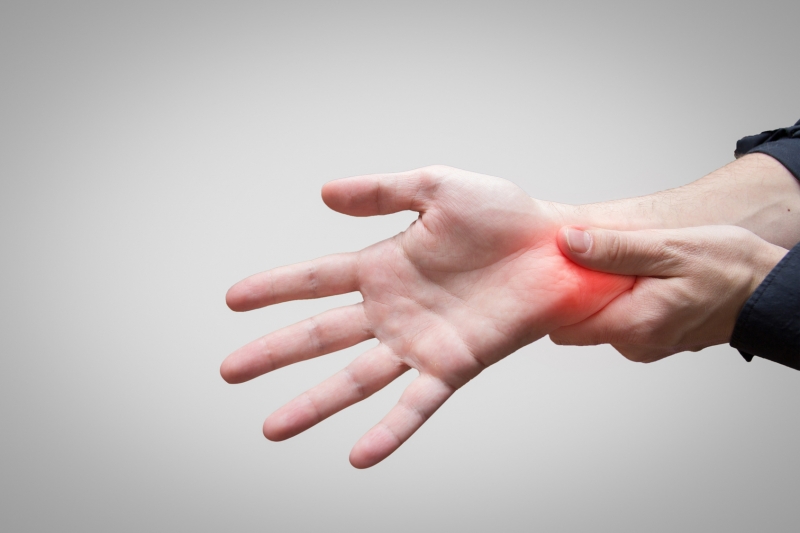
Carpal Tunnel Syndrome is a condition characterized by numbness, tingling or weakness in your hands. The condition is often suspected to be caused by excessive pressure on the median nerve, running the length of the arm, going through a passage in the wrist called the carpal tunnel, ending in the hand. This median controls the movement and feeling of the thumb along with the movement of all the fingers except the little finger. Patients with Carpal Tunnel Syndrome must get it treated at the earliest as any delays can lead to the symptoms getting worse and lasting a lifetime. It is easier to treat if diagnosed early. PAL physiotherapy offers Carpal Tunnel Syndrome treatment in Gurgaon under qualified physiotherapists who take care of their patients.
Although the exact cause of Carpal Tunnel Syndrome has been unknown, it has often been associated with the following causes -
Some other possible causes of this condition may be intrinsic factors (exerting pressure within the tunnel), and extrinsic factors (exerting pressure from outside the tunnel).
Other than that, a variety of other factors can lead to Carpal Tunnel Syndrome. These factors are of the sort of heredity, size of the carpal tunnel, associated local and systemic diseases, and certain habits - specific to the patient. Non-traumatic causes of the disorder generally tend to appear over a period of time and are not triggered by any certain event.
Biologically women have a smaller carpal tunnel as compared to men. Hence, they are three times more likely to fall prey to the disorder. If the condition is triggered by pregnancy, the symptoms usually go away by themselves within a few months after delivery.
The symptoms of Carpal Tunnel Syndrome usually develop gradually. Some of the initial symptoms include -
The patient may observe that the fingers often become numb at night. This generally happens in the evening because of the relaxed position of the hand and while sleeping.
Sometimes, the patient may even wake up with numbness and tingle in the hands running all the way to the shoulder. As carpal tunnel syndrome becomes more severe, pain and muscle cramping become worse.
No standard diagnosis for Carpal Tunnel Syndrome has been designed. The doctors often use a careful combination of the symptoms described by the patient, clinical findings, and electrophysiological testing to confirm the presence of the condition.
An accurate diagnosis of the disease usually involves the doctor carefully identifying if the symptoms described by the patient match the distribution pattern of the median nerve or not.
The doctor, in a majority of the cases, asks you some questions and conducts one or more of the tests mentioned below to confirm if you have Carpal Tunnel Syndrome or not -
Physiotherapy has increasingly been proposed as an effective treatment for Carpal Tunnel Syndrome in Gurgaon. The treatment generally starts with the physiotherapist analyzing your symptoms well and developing a personalized treatment plan.
In case a major reason for your symptoms is repetitive motion, you may be advised to take more frequent breaks during work or indulge in the activity less frequently.The physiotherapy treatment usually includes Night Splint, Ultrasound Therapy, TENS Therapy, and Class 4 High Intensity Laser Therapy. A few stretching and strengthening exercises could also be recommended.
In general, physical therapy for Carpal Tunnel Syndrome consists of some serious and targeted modifications of activities and the workplace along with educating the patient about the disorder. Nerve mobilization, ultrasound, electromagnetic field therapy and splinting are also employed sometimes.
It is really important that you effectively communicate with your physiotherapist in order to help them understand your condition better. Make sure that your physical therapist gives you specialized advice regarding task modification, activity patterns and the required variation of movements while performing jobs involving repetitive motion of the hands and the wrists.
